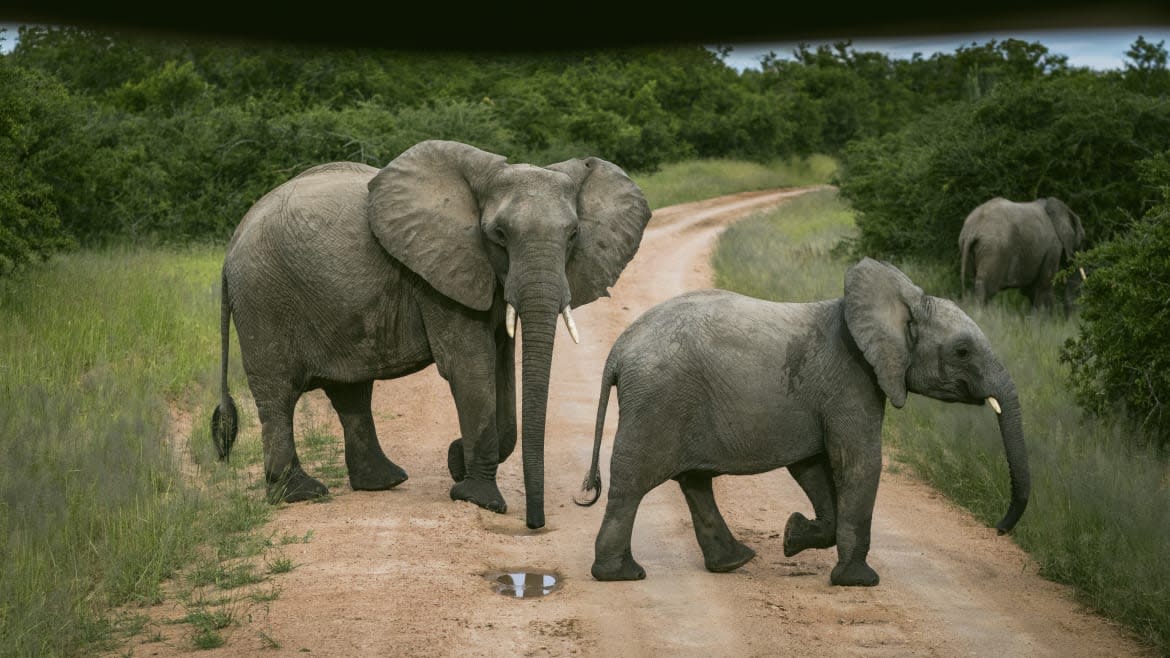Secret Murders Alleged at Tourist Hotspot for Luxury Safaris

The World Bank has decided to pull funding for a controversial tourism project following accusations it has led to extrajudicial killings, disappearances, and the sexual abuse of local villagers in Tanzania.
Launched in 2017, the program aimed to improve the management of natural resources and tourism in Southern Tanzania, including Ruaha National Park (RUNAPA), which has been tied to a cascade of human rights abuses, according to the Oakland Institute, a California-based advocacy group.
The World Bank has already disbursed $100 million of the $150 million project, known as REGROW, according to The Oakland Institute.
The Tanzanian government plans included work aimed at nearly doubling the size of the park, the largest protected wildlife area in the country, from one million to over two million hectares. But the expansion plans have left the local villagers high and dry: The plan has included Tanzanian government efforts to forcibly evict over 21,000 people to expand the park, without providing villagers compensation or other land, according to The Oakland Institute.
“Communities report that park rangers, receiving funding through REGROW, have been implicated in murders of several villagers and numerous instances of violence since the project began,” according to a recent report published by the institute. “The World Bank, however, has turned a blind eye to the horrific abuses unleashed on the communities by choosing to not enforce its own safeguards.”
Even as local villagers have pushed back on the human rights abuses, luxury tourist options for visiting the park abound. From sunrise hot air balloon tours over the park with champagne celebrations, to camps with private lodges and spa attractions like pools, and massages—visitors from around the globe have continued to tour the park despite the allegations.
Walking With Wildebeests: Exploring the Serengeti on Foot
Wildlife reserves have continued to be a boon for Tanzania, pulling in billions of dollars of tourism revenue annually. But the ongoing issues with the REGROW project have raised questions about the rights of local villagers living near tourist attractions.
“This should be a wakeup call for the Bank’s leadership in Washington, D.C.—you cannot continue to ignore the voices of the people on the ground who are struggling to survive as a result of your so-called ‘development’ projects,” Anuradha Mittal, Executive Director of the Oakland Institute said.
The World Bank told The Daily Beast it had suspended further funding for the project after receiving information that “suggests breaches of our policies in the implementation of the REGROW project.”
“The World Bank is deeply concerned about the allegations of abuse and injustice related to the Resilient Natural Resources Management for Tourism and Growth (REGROW) project in Tanzania,” a World Bank spokesperson told The Daily Beast, adding that the World Bank will work with the authorities moving forward to try to ensure the project can “improve the lives of Tanzanians.”
The backpedaling from the World Bank comes after years of the Oakland Institute pushing against the project. Villagers have also taken steps to protest the project, and have on multiple occasions turned to the legal system for recourse, without any success. Last year villagers filed a case in the East African Court of Justice against the expansion of the park as well.
The Oakland Institute called the decision “long overdue.”
“It sends a resounding message to the Tanzanian government that there are consequences for its rampant rights abuses taking place across the country to boost tourism,” Mittal said. “The days of impunity are finally coming to an end.”
Reparations should be provided to the villagers who have been victims of the human rights abuses, The Oakland Institute said.
“Moreover, villagers who have been victims of gross human rights violations and crippling livelihood restrictions must receive adequate, effective, and prompt reparations to ensure justice and help redress the harm they have endured,” the Oakland Institute said in a statement.
The World Bank did not answer questions about whether it will participate in providing reparations to the affected villagers.
Get the Daily Beast's biggest scoops and scandals delivered right to your inbox. Sign up now.
Stay informed and gain unlimited access to the Daily Beast's unmatched reporting. Subscribe now.


